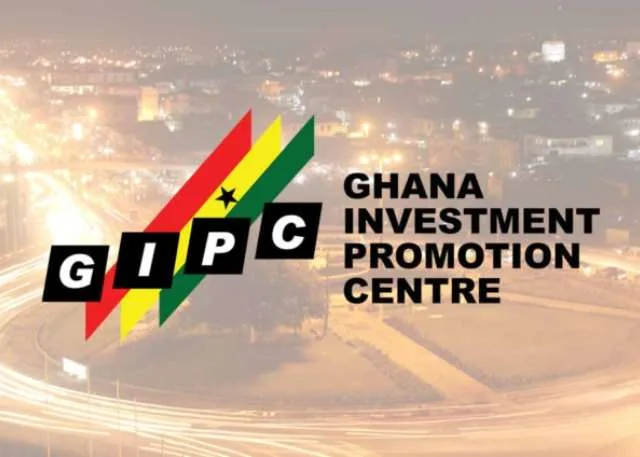
The GIPC Act has transformed Ghana into West Africa’s most attractive destination for foreign real estate investment, offering substantial tax incentives and clear regulatory frameworks that smart investors can leverage for exceptional returns. Foreign property investors can achieve 18% average returns whilst benefiting from five-year tax holidays and guaranteed profit repatriation, making Ghana a compelling alternative to saturated European and North American markets.
Ghana’s Investment Promotion Centre Act 2013 (Act 865) established the legal foundation for foreign investment across all sectors except mining and petroleum. The Ghana Investment Promotion Centre (GIPC) replaced outdated 1994 legislation, creating a sophisticated framework that balances investment promotion with economic sovereignty. For real estate investors, this means comprehensive legal protections, streamlined registration processes, and substantial financial incentives that position Ghana ahead of regional competitors.
Capital requirements unlock significant opportunities
Foreign real estate investors face clear minimum capital thresholds under current legislation. Joint ventures with Ghanaian partners require USD $200,000 minimum foreign investment, whilst wholly foreign-owned enterprises need USD $500,000. However, the pending Amendment Bill 2023 proposes eliminating these requirements entirely, except for trading companies. This change would align Ghana with regional competitors like Ivory Coast and Togo, removing barriers for smaller-scale developments and digital property platforms.
The registration process takes approximately three to four weeks from company incorporation to GIPC certification. Foreign investors must demonstrate capital through Bank of Ghana confirmation letters for cash investments or customs documentation for in-kind contributions. Registration fees range from GHS 10,500 to GHS 31,500 depending on investment structure, with biennial renewals currently required.
Tax incentives deliver exceptional value
Ghana’s real estate development enjoys complete tax exemption for five years, followed by the standard 25% corporate rate. Commercial and residential rental income remains tax-free for five years after construction, creating immediate cash flow advantages for property developers. Additionally, import duties on construction machinery and equipment are zero-rated, reducing development costs significantly.
Low-cost housing developments benefit from preferential 5% tax rates for five years, supporting Ghana’s affordable housing initiatives. The country’s 1.8-2 million unit housing deficit creates substantial market demand, whilst government programmes like the National Housing Fund provide financing at 11.9%-12.5% interest rates. Discover how VAAL’s developments, like Villanova, capitalise on these market opportunities.
Free zones offer even greater incentives with 10-year complete tax holidays followed by maximum 8% corporate tax rates. Developers established within free zones receive additional import duty exemptions and withholding tax relief, though they must export at least 70% of production.
Amendment Bill 2023 transforms investment landscape
The proposed GIPC Amendment Bill 2023 represents a fundamental shift towards investment liberalisation. Beyond eliminating minimum capital requirements, the Bill transforms GIPC into the Ghana Investment Promotion Authority with enhanced regulatory powers. Registration renewals change from biennial to annual requirements, whilst eight business activities previously reserved for Ghanaians become accessible to foreign investors.
Technology Transfer Agreements face new restrictions with initial durations limited to five years (down from ten), whilst “fronting” becomes a criminal offence with penalties up to GHS 48,000. These changes reflect Ghana’s commitment to transparent foreign investment whilst protecting domestic economic interests.
Strategic considerations for foreign investors
Land ownership restrictions require careful structuring as foreigners cannot hold freehold interests. Maximum 50-year renewable leases provide adequate security for most developments, whilst joint ventures with Ghanaian partners ensure compliance with ownership requirements. Due diligence remains critical given Ghana’s complex customary land tenure system, affecting 80% of available land.
Currency repatriation rules guarantee profit transferability through recognised commercial banks, though supporting documentation is mandatory. The Foreign Exchange Act permits unlimited repatriation of dividends, profits, and liquidation proceeds for properly registered investments.
Prime locations in Accra’s Airport Residential and Ridge areas deliver 7-18% rental yields, whilst emerging markets in Kumasi and Takoradi offer lower entry costs with substantial appreciation potential. Foreign investors should partner with Ghana Real Estate Developers Association (GREDA) members to ensure professional standards and local market expertise.
Political stability, regional integration through ECOWAS, and growing middle-class urbanisation create favourable long-term fundamentals. Ghana’s business-friendly policies and comprehensive bilateral investment treaties provide additional security for international investors.
Understanding the GIPC Act framework enables foreign investors to capitalise on West Africa’s most dynamic property market. With pending legislative changes potentially eliminating capital barriers and existing tax incentives delivering immediate returns, Ghana presents exceptional opportunities for strategic real estate investment. VAAL Ghana’s expertise in navigating regulatory requirements and identifying prime investment opportunities ensures foreign investors maximise their success in Ghana’s evolving property landscape.